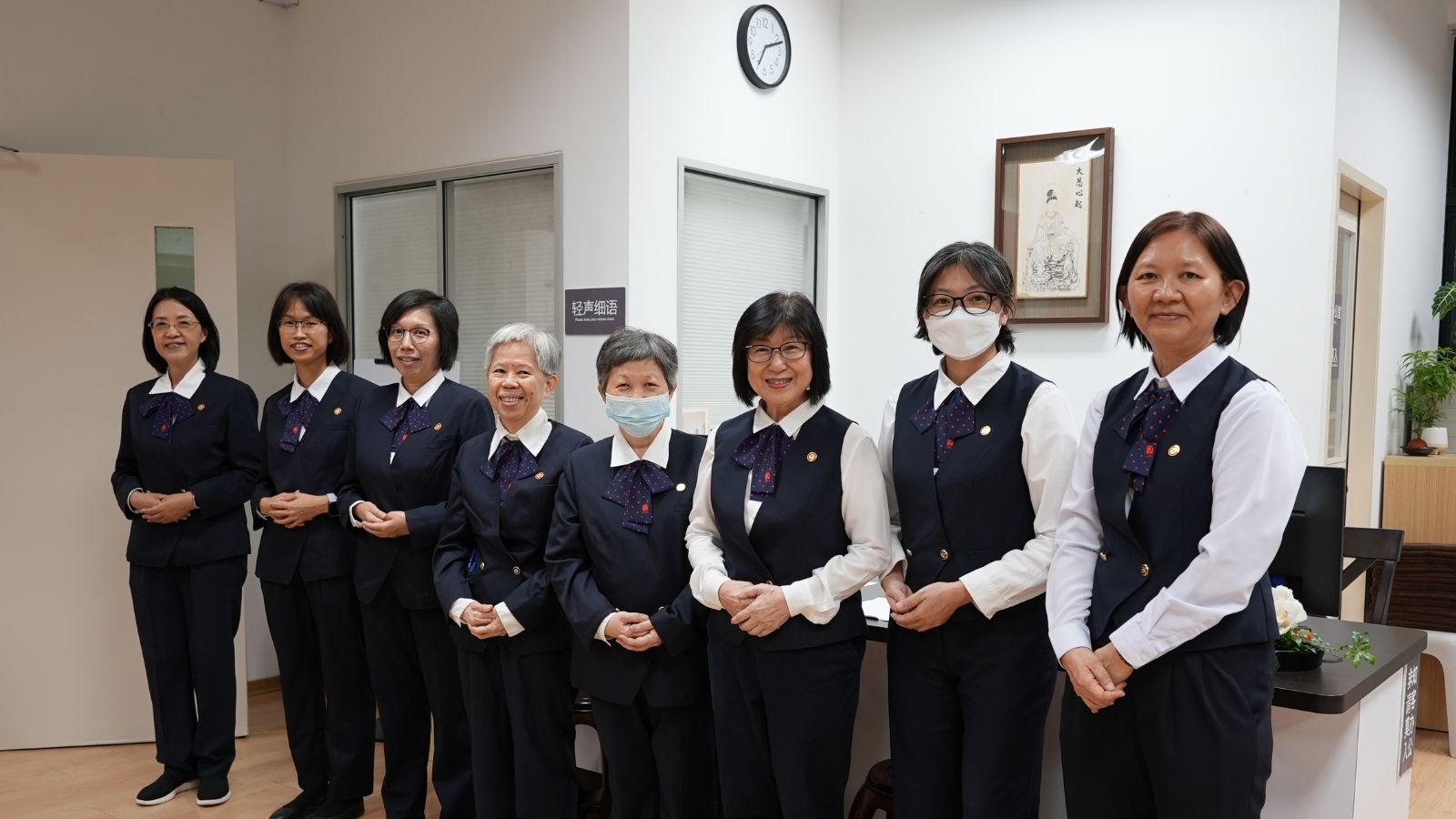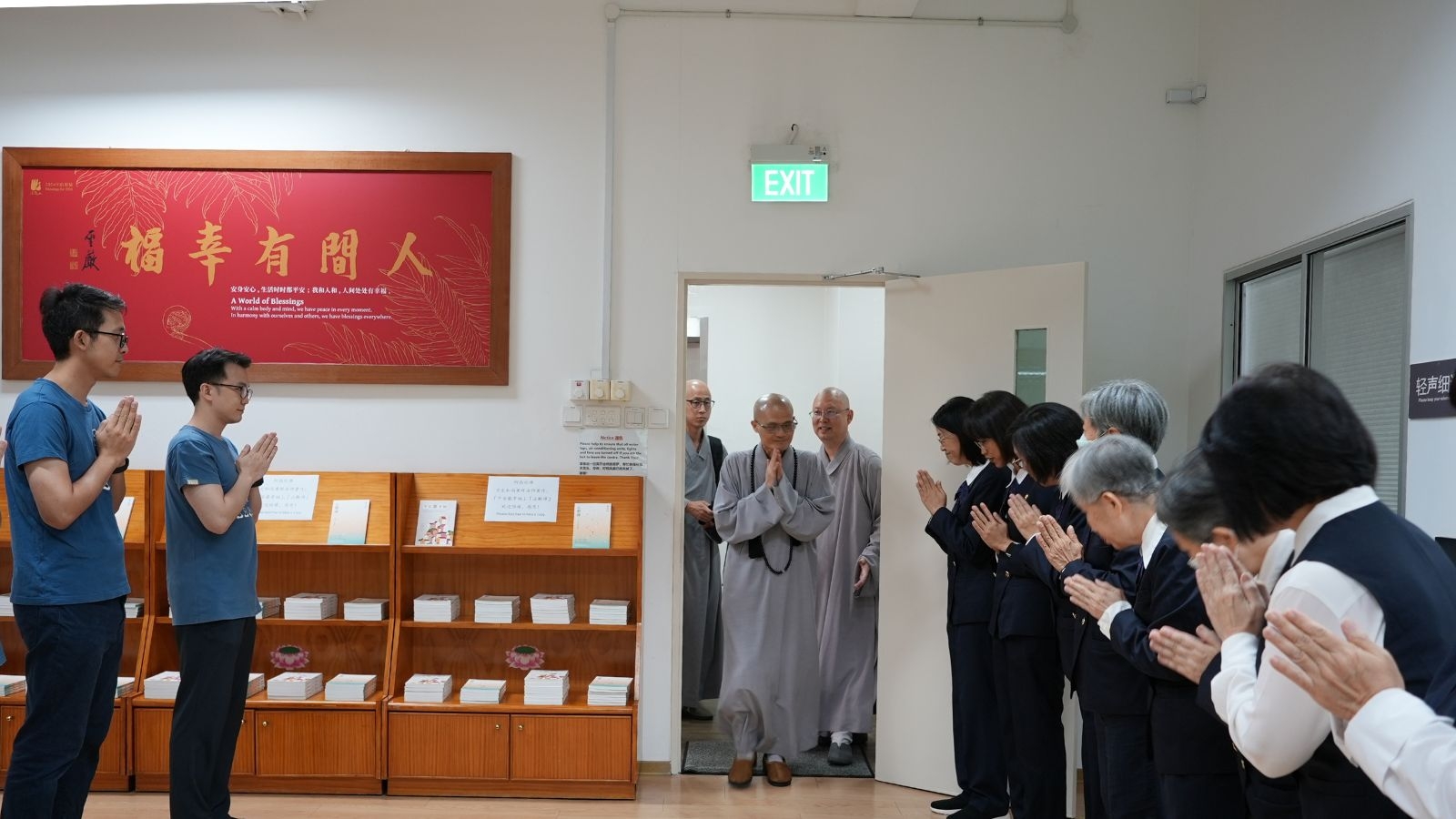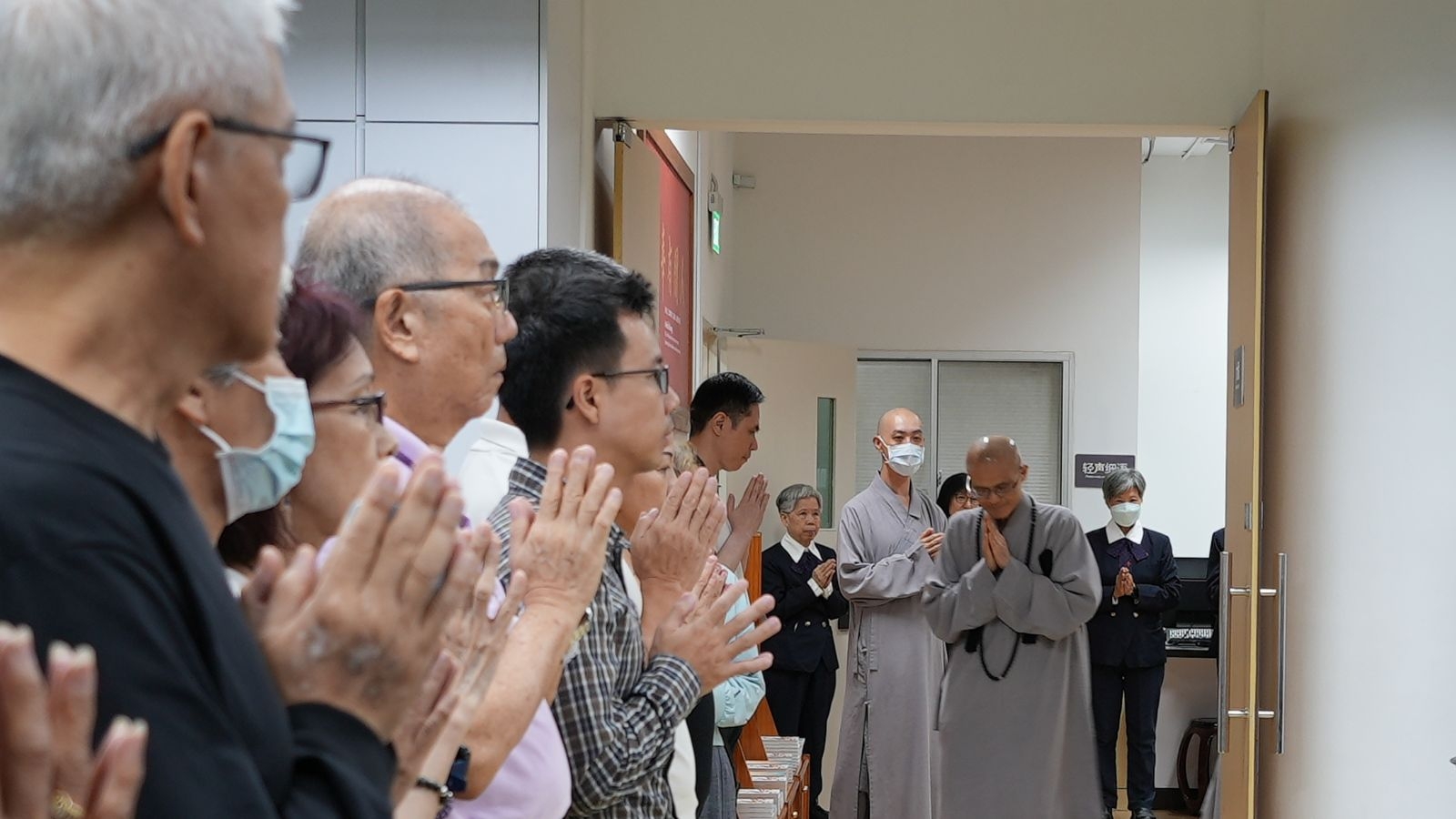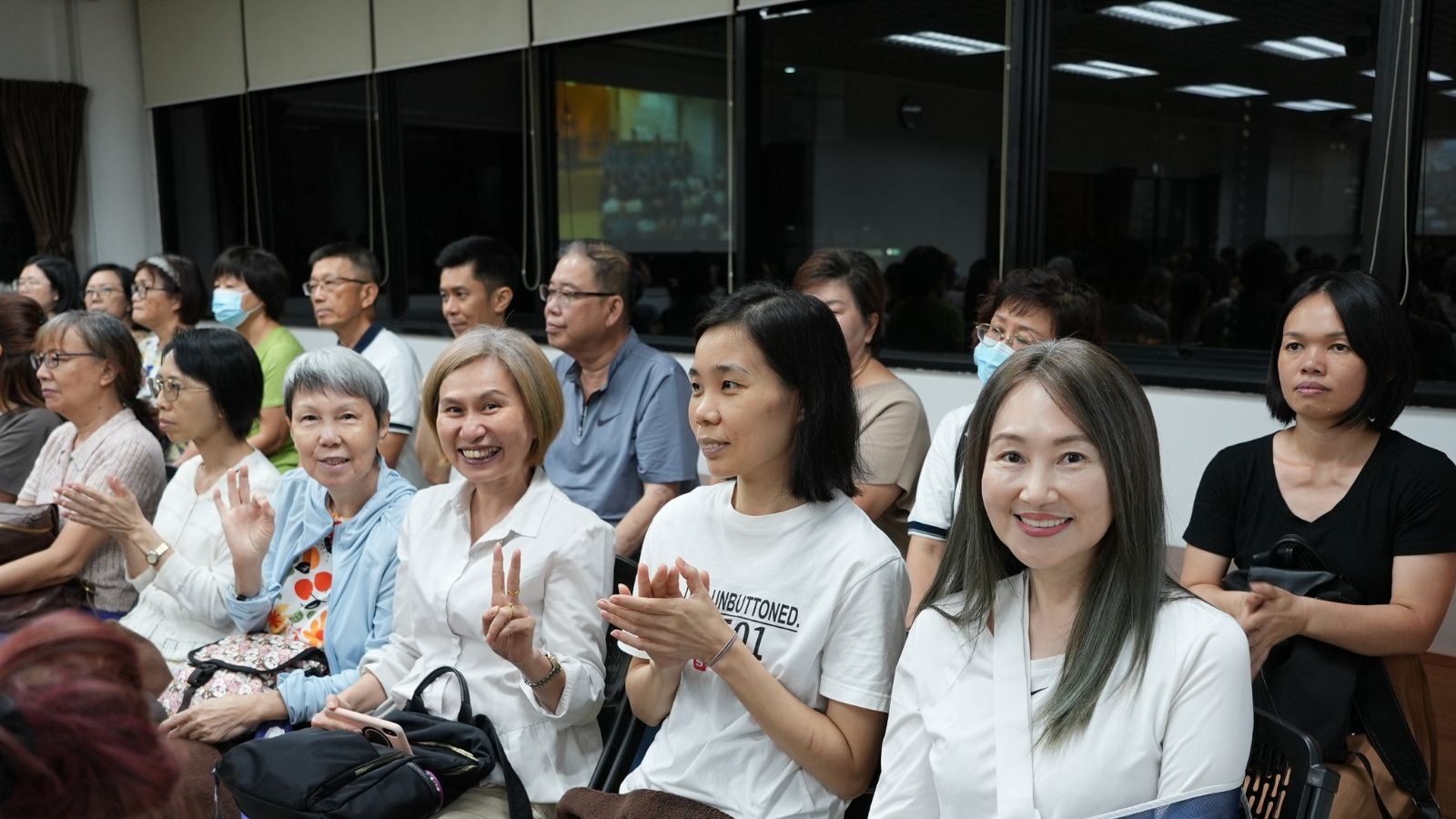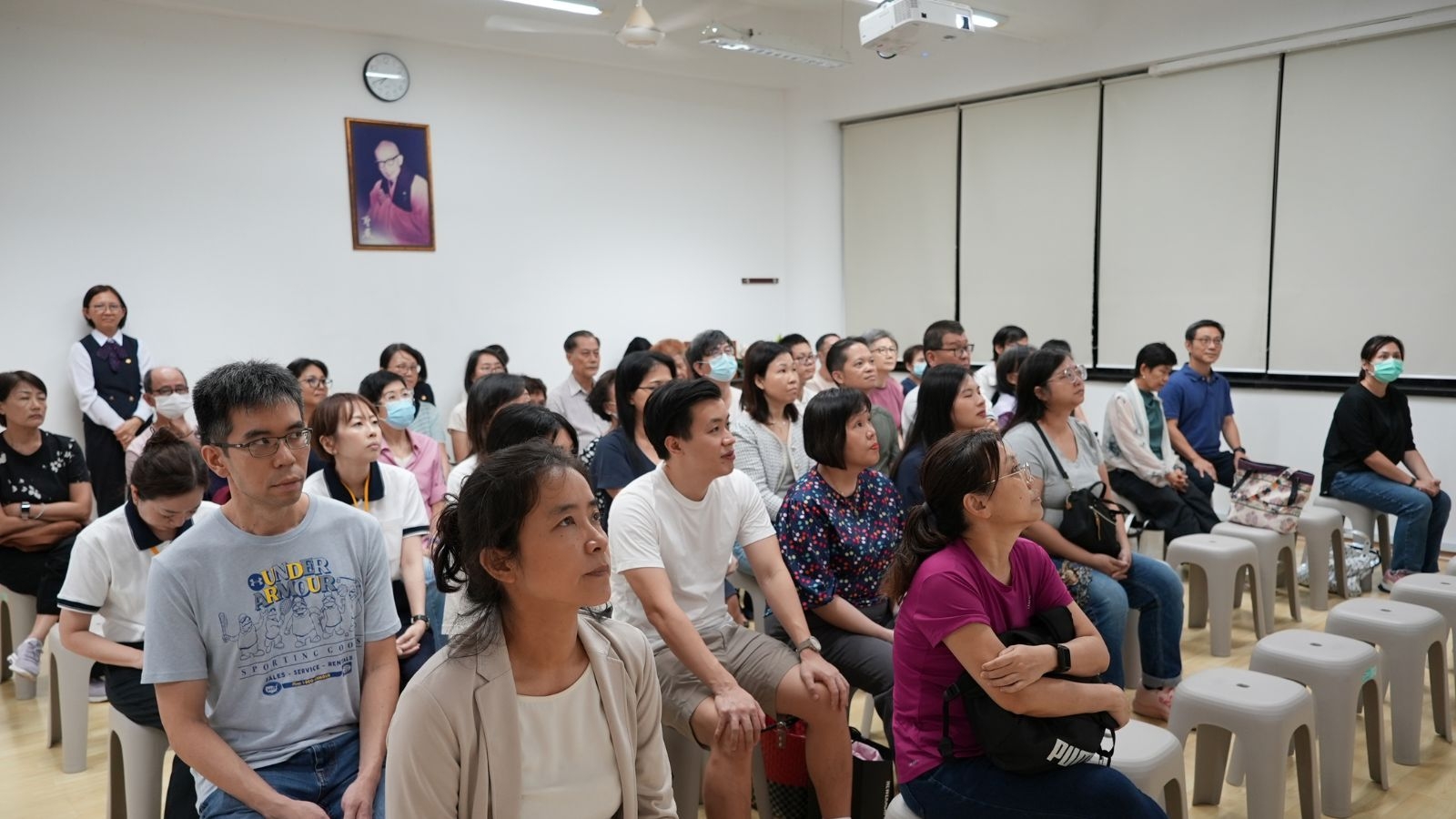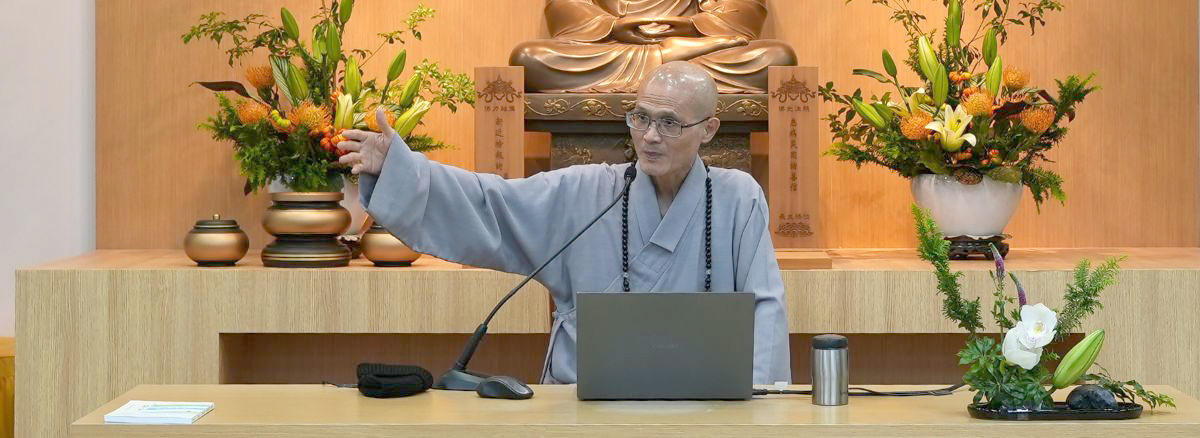
I was lucky enough to have had the fortune of attending a talk by Venerable Guo Huei (果晖), Dharma Drum Mountain’s Abbot President, who I heard was spending just a couple of days in Singapore. It was a Friday evening and I think many people were probably tired after finishing a week’s worth of work, so it was very inspiring to see so many like-minded people interested in learning the Dharma turn up to learn from a wonderful monastic teacher.
The Venerable chose a very relatable topic for his talk, which was the concept of happiness – what it meant to be truly happy as a human being, and how to go about achieving a state of happiness. But even though the topic is close to everyone’s hearts, it seems like it was not as intuitively easy as one would expect to attain this desired state of happiness, if my own experience were anything to go by.
As we grow up, we seem to want happiness and experiment with many ways to try to find it, but we usually do not know what it truly means. As a result, we try to achieve good grades at school, get a nice job, make good friends and travel the world, all in the name of finding a fleeting glimmer of joy. This gives us some sense of purpose and meaning, until we find that at some point this process starts to not work anymore – wanting that nice job, nice vacation or partner does not yield the same kind of happiness that it used to, and in fact could also come with a lot of suffering. The happiness machine is broken, and in fact has been broken from the start!
Venerable Guo Huei offers us the alternative, which is grounded in the Dharma and leads to sustainable and true happiness. Encapsulated in a pithy phrase, it would be that practising peace, generosity and wisdom lead to stable and lasting happiness that no one can take away from you. Venerable Guo Huei then went into some detail on each aspect.
Peace was the first aspect that the Abbot expounded on. He demonstrated that peace has to first be achieved within oneself for us to then establish happy relationships with others “in harmony with ourselves and others, we have blessings everywhere (我和人和,人间处处有幸福)”. To be happy, Venerable Guo Huei also stressed the need to take care of both our body and mind. Counterintuitively, he taught that to take care of the body we need to move it adequately; conversely, to bring the mind to health meant to give it the time to be quiet. This seems to imply that allocating ample time for rest, meditation and quiet reflection is not an option, but an imperative for good mental health! Closely related to this was the concept of peace with one’s circumstances, or contentment, which is another key ingredient for happiness. Recognising the difference between what we need and what we want and not being too hung up about the latter would be a huge boost to our happiness, as the heart does not continually chase and seek out “something else”, and can instead be happy in the present moment.
The second key ingredient to happiness is generosity in a broader sense. This would include loving and helping family, but also respecting work – the Abbot praised being dedicated to one’s craft as doing it well makes life easier for others. He also emphasised that contributing one’s time and effort to something with a heart of giving is also part of Buddhist practice, and this could be at work or outside (for example when volunteering).
And lastly, Venerable Guo Huei capped off his talk by reminding us that Right View of the way things really are is what would underpin our experience of happiness and well-being. Understanding the universal characteristic of impermanence – that all things and phenomena are inherently unreliable, will change and pass away – lessens our attachments and unrealistic expectations of the world. The Abbot used examples using internet multimedia to show us why our own perceptions of phenomena are often incorrect due to the way our mind perceives things; in the same way, our senses perceive the world and things as unchanging even though in reality they are in constant flux.
The truth of impermanence also injects a level of positivity in negative situations that would not have been possible before, as now we can place our attention on the things we can actually work on and put our effort in these areas, while waiting patiently for inevitable changes in the situation that must occur at some point. This means also having the wisdom to discern between things that cannot be changed and those that can, and making peace with the former while rousing energy to work on the latter.
In all, Venerable Guo Huei charted out for us a path towards sustainable happiness. Our task then, is to actually start putting this path into practice and tasting the fruits for ourselves.
Written by: Loo Eng Fei
Photograph: Elaine Chee
Event: 2024 September 28

